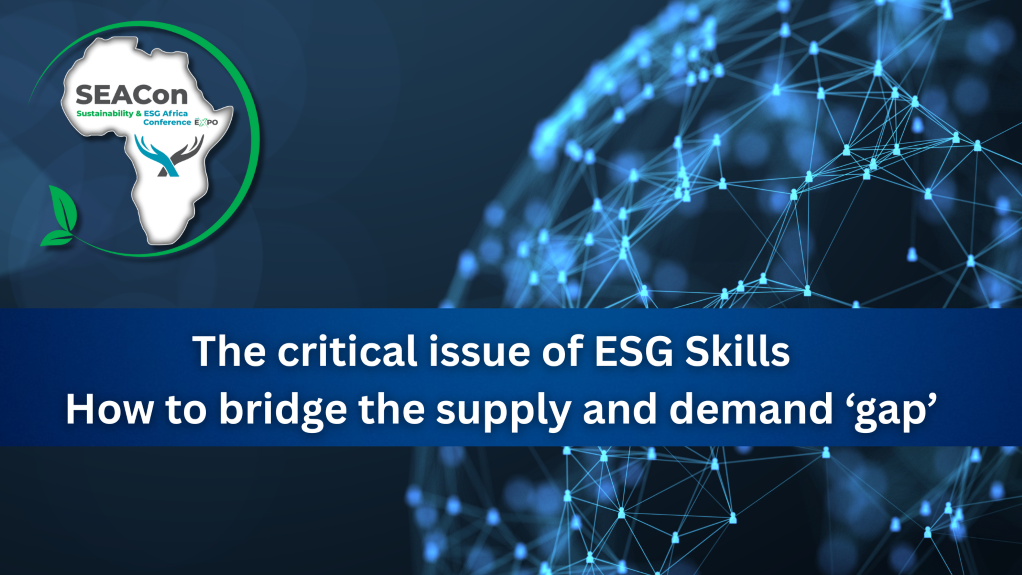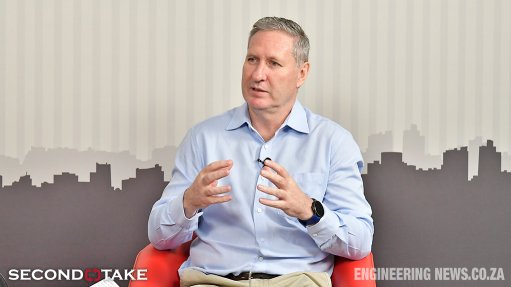The critical issue of ESG Skills – How to bridge the supply and demand ‘gap’
This article has been supplied.
Over the last half-century, sustainable development concepts have increasingly woven themselves into the fabric of economic discussions, resulting in advances in human capital across finance, life sciences, and social sciences. Whether leading a corporation, a watchdog organization, a media outlet, or serving in public office, it is clear that in today’s complex landscape, effective leadership for sustainable change demands a unique blend of skills and competencies.
A recent report from LinkedIn, titled "2024 Global Talent Stocktake," reveals that the demand for green skills related to climate change alone has consistently outstripped their supply in recent years. From 2021 to 2024, the annual demand for these skills rose by an average of 5.9%, while the growth in green talent supply was only 3.2%. The report indicates that if current trends continue, the disparity between the demand and supply of green skills could reach 18.7% by 2030, and by 2050, the demand is anticipated to exceed supply by a staggering 101.5%.
“The problems we face today require innovative approaches,” says Wendy Poulton, Director of the ESG Africa Conference. “As sustainability becomes more regulated and complex, it’s crucial that leaders across all sectors develop the necessary skills to navigate these challenges.”
The 2024 ESG Africa Conference, brought together a panel of esteemed experts to discuss skills in ESG. The event allowed for engaging discussions around the essential competencies ESG professionals need, and some of the challenges faced in finding the people who possess these skills.
Keynote presentations featured insights from the Centre for Researching Education and Labour, which emphasized the critical skills needed in this evolving field while exploring promising career pathways for Sustainability and ESG professionals. “We need multi-disciplinary thinkers who can tackle intricate global issues like climate change and social inequality,” Poulton added. “But we also need specialists who can implement solutions in very specific areas.”
Attendees posed key questions that highlighted the urgency for organizations to reassess their skill strategies. “Is our workforce truly prepared to transition away from traditional business models?”, “And how do we equip the next generation of leaders to drive inclusive and sustainable growth while dealing with rapid change?”
Throughout the conference, critical insights around skills emerged, emphasizing the need for diverse skill sets within organisations. As highlighted, some of the core skills critical for success in sustainability and ESG include:
Leadership Skills: Leaders must inspire action, build coalitions, and navigate uncertainty.
Systems Thinking: Understanding how various factors interconnect within a larger system helps leaders anticipate the long-term impact of their actions on the environment and society. This is especially important for achieving a circular economy and navigating complex political, environmental and social issues.
Risk and Strategy Management: Organizations must proactively assess and manage risks related to climate change and social inequality. Strong risk management strategies help businesses adapt to disruptions while evolving their business models and leveraging sustainability opportunities for transformative approaches.
Problem-Solving Skills: Developing innovative solutions through critical thinking.
Empathy and Integrity: Acting as responsible global citizens in decision-making processes.
Some of the specialised skills which will be required of sustainability and ESG professionals in charge of driving implementation include the following:
1. Artificial Intelligence (AI) and Data
Data analysis is at the core of Sustainability and ESG-related jobs. Professionals must be skilled in handling large datasets for scenario planning, modelling, and reporting. Hybrid skills that combine computer programming with statistical analysis are increasingly valuable. AI is changing the way in which we gather, analyse, and manage data, processes and innovation. It is a competitive advantage and a potential risk to jobs and resource use increase.
2. Monitoring, Evaluation, and Learning (MEL)
MEL frameworks assess the long-term effectiveness of Sustainability ESG programmes. Practitioners track progress using qualitative and quantitative data, ensuring continuous learning and adaptation. Reporting across multiple fronts for disclosure, legal requirements, certification and funding covenants is being increasingly complex and requires a mixture of analytical, financial, and auditing skills.
3. Industry or Technical Specialization
Since ESG factors vary across industries, specialised knowledge is crucial. For example, a Sustainability and ESG analyst might focus on commodities, environmental impact assessment, or emerging technologies like green hydrogen. It reflects the dilemma that sustainability skills are needed in virtually every job and so skills strategies need to cover not only qualification and certification, but awareness building, upskilling and reskilling as well.
4. Value Chain Analysis
A holistic approach to sustainability requires understanding value chains. For example, in the beef industry, ESG considerations include cattle raising standards, deforestation, land use change, and the environmental impact of leather tanning. It also means working with the value chain to improve cost management, efficiency, productivity and reporting.
5. Legal Expertise
Corporate governance, environmental law, and human rights law are in high demand. Legal professionals play a critical role in navigating global regulatory requirements and emerging ESG reporting standards. The legal requirements around sustainability and ESG are increasing as governments change policy direction and regulate previously voluntary activities and increase the stringency of requirements.
6. Stakeholder Engagement and Communication
Strong relationships with investors, employees, and communities are key to effective Sustainability and ESG management. Communication and marketing professionals must integrate sustainability and ESG messaging into corporate strategies, marketing and sales efforts, broadening their skills requirements in understanding the business and stakeholder views and needs in more detail.
7. Finance & ESG
The financial sector is crucial in advancing sustainability. Skills in green bonds, climate finance, and financial reporting ensure that organisations make sound, sustainable investment decisions.
Addressing Sustainability and ESG skills gaps requires a holistic approach that aligns global trends, government policies, business needs, education providers, and labour markets. Poulton concluded “It means understanding the ecosystem and crafting broad-based skills strategies that can work within this complexity. Achieving the right balance of skills at the right time demands agility, foresight, and collaboration among key stakeholders.”
The conversations started at the ESG Africa Conference set the stage for forward-thinking discussions on reskilling and upskilling initiatives across sectors, ensuring that organizations are equipped to meet the challenges and opportunities that lie ahead. This topic will be unpacked further at the 2025 edition of the Sustainability and ESG Africa Conference, scheduled to take place from the 15-16 October, at Sandton Convention Centre in Johannesburg.
For more information about the event, please visit the website at www.esgafricaconference.com
Comments
Press Office
Announcements
What's On
Subscribe to improve your user experience...
Option 1 (equivalent of R125 a month):
Receive a weekly copy of Creamer Media's Engineering News & Mining Weekly magazine
(print copy for those in South Africa and e-magazine for those outside of South Africa)
Receive daily email newsletters
Access to full search results
Access archive of magazine back copies
Access to Projects in Progress
Access to ONE Research Report of your choice in PDF format
Option 2 (equivalent of R375 a month):
All benefits from Option 1
PLUS
Access to Creamer Media's Research Channel Africa for ALL Research Reports, in PDF format, on various industrial and mining sectors
including Electricity; Water; Energy Transition; Hydrogen; Roads, Rail and Ports; Coal; Gold; Platinum; Battery Metals; etc.
Already a subscriber?
Forgotten your password?
Receive weekly copy of Creamer Media's Engineering News & Mining Weekly magazine (print copy for those in South Africa and e-magazine for those outside of South Africa)
➕
Recieve daily email newsletters
➕
Access to full search results
➕
Access archive of magazine back copies
➕
Access to Projects in Progress
➕
Access to ONE Research Report of your choice in PDF format
RESEARCH CHANNEL AFRICA
R4500 (equivalent of R375 a month)
SUBSCRIBEAll benefits from Option 1
➕
Access to Creamer Media's Research Channel Africa for ALL Research Reports on various industrial and mining sectors, in PDF format, including on:
Electricity
➕
Water
➕
Energy Transition
➕
Hydrogen
➕
Roads, Rail and Ports
➕
Coal
➕
Gold
➕
Platinum
➕
Battery Metals
➕
etc.
Receive all benefits from Option 1 or Option 2 delivered to numerous people at your company
➕
Multiple User names and Passwords for simultaneous log-ins
➕
Intranet integration access to all in your organisation





















